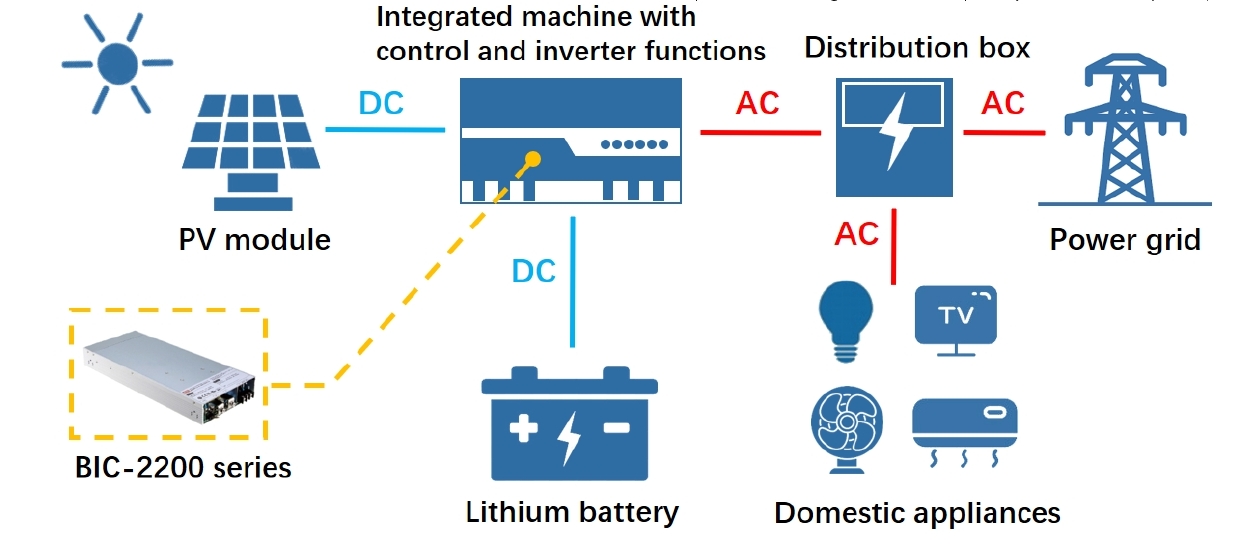Application of New Energy Industry- BIC-2200
Viewers : 12948
Technical Service Center /Weiqiang Wu
With the advancement of the "net zero carbon emissions", industries such as new energy vehicles and photovoltaics continue to thrive, driving the continuous expansion of the lithium-ion battery industry. In the development of the lithium battery industry, bidirectional power supplies play an indispensable role, whether in charge and discharge testing at the production end or as backup energy for residential energy storage systems. MEAN WELL bidirectional power supply BIC-2200 series is suitable for various battery factories. During the battery formation and grading stages (as shown in Figure 1), the BIC-2200 is used for charging the batteries; simultaneously, the energy released by the battery can be fed back to the power grid for use by other AC equipment, thereby reducing electricity costs for businesses.

Figure 1. Schematic Diagram of Formation and Grading Application

Figure 2. Home Energy Storage System

Figure 3. Lithium Battery Recycling Process

Figure 1. Schematic Diagram of Formation and Grading Application
Home energy storage systems (as shown in Figure 2) mainly includes photovoltaic components, lithium batteries, integrated grid-controlled inverters, and household appliances. At night, the low-cost electricity from the power system is used to charge and store energy in the lithium batteries through the integrated BIC-2200 inverter. During the daytime when the power grid has high demand, the lithium battery reversely outputs energy through the BIC-2200 and feeds it back to the power system. This not only helps to smooth out peak loads, reduce power grid fluctuations but also allows households to save on electricity expenses.

Figure 2. Home Energy Storage System
In recent years, with the vigorous promotion of new energy vehicles, the demand for automotive lithium batteries has been steadily increasing. As lithium batteries age, the number of retired lithium batteries is growing rapidly, and the lithium battery recycling industry will also be entering a period of explosive growth. Various types of battery disassembly equipment have been launched on the market. Before recycling lithium batteries, to prevent dangerous situations such as fire and explosion during dismantling, it is necessary to discharge the lithium battery to a voltage below the safety level. In this regard, the BIC-2200 can be effectively utilized in various battery dismantling equipment.

Figure 3. Lithium Battery Recycling Process

